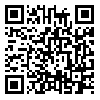دوشنبه 4 اسفند 1404
[Archive]
دوره 3، شماره 2 - ( Spring 2015-- 1394 )
جلد 3 شماره 2 صفحات 143-137 |
برگشت به فهرست نسخه ها
Download citation:
BibTeX | RIS | EndNote | Medlars | ProCite | Reference Manager | RefWorks
Send citation to:



BibTeX | RIS | EndNote | Medlars | ProCite | Reference Manager | RefWorks
Send citation to:
Heydari H, Dolatshahi B, Mahdaviani A, Eslaminejad A. Asthma Control on the Basis of Perceived Stress, Locus of Control, and Self-efficacy in Patients with Adult Asthma. PCP 2015; 3 (2) :137-143
URL: http://jpcp.uswr.ac.ir/article-1-261-fa.html
URL: http://jpcp.uswr.ac.ir/article-1-261-fa.html
Asthma Control on the Basis of Perceived Stress, Locus of Control, and Self-efficacy in Patients with Adult Asthma. Practice in Clinical Psychology. 1394; 3 (2) :137-143
چکیده: (6474 مشاهده)
Objective: This study aimed to investigate the prediction of asthma control on the basis of perceived stress, locus of control, and self-efficacy in adult patients with asthma.
perceived stress, locus of control, and self-efficacy in adult patients with asthma.
Methods: This was a descriptive-correlative and cross-sectional study.The solecty of this study is all asthmatic patients in Tehran. our sample consisted of 100 participants who were selected by purposeful sampling method. A total of 100 patients with asthma were selected among outpatients of Masih Daneshvari Hospital. Participants included 52 women and 48 men. Their mean (±SD) age was 36.12 (±9.82) years. Sociodemographic data were collected and Perceived Stress Scale (PSS), Multidimensional Health Locus of Control (MHLC), Asthma Self-efficacy Scale (ASES), and Asthma Control Test (ACT) were applied. Data were analyzed by Pearson correlation and multiple regression analysis. Statistical analysis was performed using the SPSS ver. 16.0.
Results: The results indicated that there were negative significant relationships between perceived stress, dimension of external control (chance) and asthma control, but positive significant relationships between self-efficacy and asthma control. In regression analysis, the perceived stress was the predictor of asthma control.
Conclusion: In this study, our findings suggest that perceived stress has an important role in the development and maintenance of asthma symptoms. In addition, self-efficacy and a tendency to externally attribute the locus of control (chance) are significantly associated with asthma control.
نوع مطالعه: پژوهشي |
موضوع مقاله:
رويكرد عصب زيست شناختي
دریافت: 1393/1/13 | پذیرش: 1393/6/27 | انتشار: 1394/1/12
دریافت: 1393/1/13 | پذیرش: 1393/6/27 | انتشار: 1394/1/12
| بازنشر اطلاعات | |
 |
این مقاله تحت شرایط Creative Commons Attribution-NonCommercial 4.0 International License قابل بازنشر است. |

